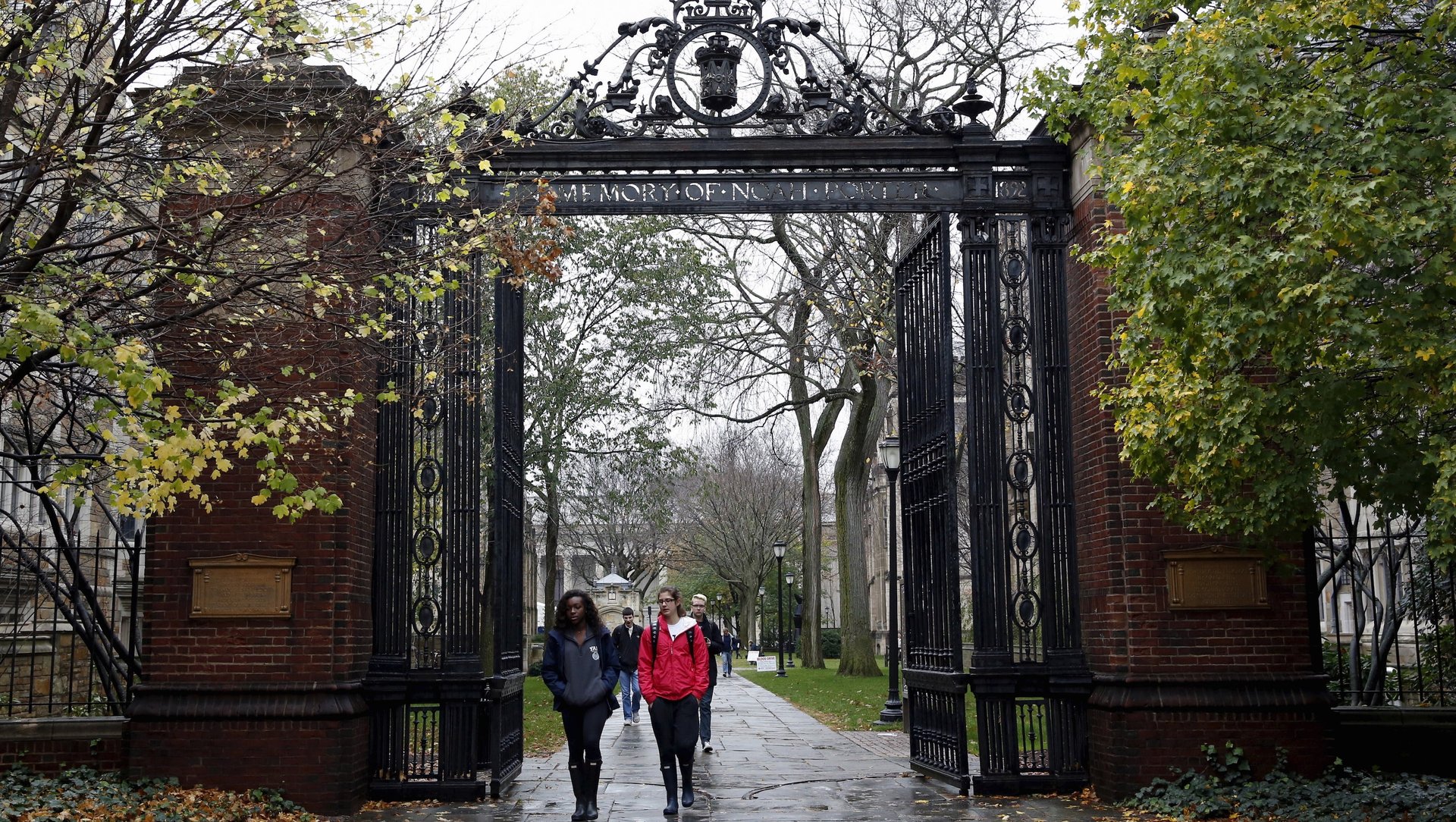Yale will not scrub a controversial white supremacist’s name from its buildings
Several months of unrest at Yale University over the legacy of Calhoun College—an undergraduate residential college that bears the name of John C. Calhoun, a 19th-century politician and prominent slavery supporter—came to a stuttering conclusion today. Yale’s administration, despite students’ protests, has decided to keep Calhoun’s name on its campus.


Several months of unrest at Yale University over the legacy of Calhoun College—an undergraduate residential college that bears the name of John C. Calhoun, a 19th-century politician and prominent slavery supporter—came to a stuttering conclusion today. Yale’s administration, despite students’ protests, has decided to keep Calhoun’s name on its campus.
Its stated justification: that to simply erase a name with significant ties to slavery and racism would be to deny a significant, albeit unpleasant, era in history. ”Removing Calhoun’s name obscures the legacy of slavery rather than addressing it,” university president Peter Salovey said in a message to the school community.
Added Salovey:
Many alumni and current students of Calhoun College believe passionately that the name constitutes present honor paid to an egregious defender of slavery, and it is an offensive and oppressive reminder of racial subordination that should be removed. I share many of these convictions, but disagree with the conclusion.
To ensure that our community acquires a deeper, more consistent, and more explicit understanding of our institution’s past, Yale will begin an interactive history project, starting with an examination of the legacy of John C. Calhoun.
At the same time, ceding to other complaints about racist symbols on campus, Yale announced it will no longer use the term “master” for faculty members who serve as heads of student housing—following Harvard University and several other schools that recently made the same change. The faculty members will instead be called “head of college.”
In addition, Yale’s two new residential colleges under construction, scheduled to begin housing students in 2017, will be named after Benjamin Franklin and Anna Pauli Murray. Murray is an African-American Yale Law School alumna, a prominent civil rights lawyer, and the first woman to have her name on a Yale residential college. Franklin didn’t attend Yale, but is a “personal role model” of a Yale alumnus whose donation is helping fund the new buildings, Salovey wrote in his message.
These changes are unlikely to quell all of the racial tension on Yale’s campus—and in the US at large—in the last few months. At Yale alone, a recent Yale Daily News poll found that more than half of the school’s students supported Calhoun College being renamed.